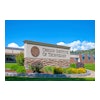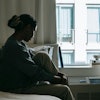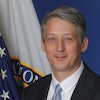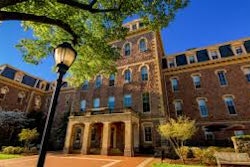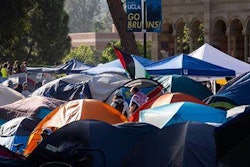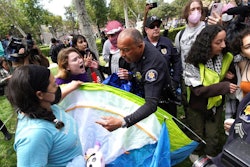Columbia University's decision to act against pro-Palestine student demonstrators who had been occupying its South Lawn, culminated in suspensions and subsequent arrests of more than 108 protesters in the “Gaza Solidarity Encampment” and a harsh rebuke from scholars from across the world.
“The issue for us on campus is freedom of expression,” said Dr. Najam Haider, chair of religion at Barnard College, a private women's liberal arts college that is part of Columbia.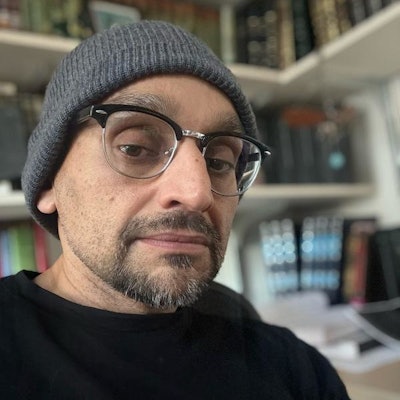 Dr. Najam Haider
Dr. Najam Haider
He said that Columbia and Barnard both pride themselves on political activism and added that efforts to quell protest comes as a violation of the basic principles that these institutions have long fought for.
“Some of us in faculty have different positions when it comes to the issue of Israel and Palestine. But the one thing that unites us as the faculty is our commitment to the students' right to protest, their right to freedom of expression,” said Haider, who is part of Columbia's Center for Palestine Studies. “What disturbs us more than anything else is that that principle itself – one of the bedrock principles of higher education in this country – is under attack."
Universities have long been sites of student political expression and protest, said Barnard history professor Dr. Premilla Nadasen. In the1980s, Columbia students similarly confronted the administration about its investments in apartheid South Africa.
“While the encampment has been dismantled, our community has had protest activity on campus since October, and we expect that activity to continue,” a Columbia spokesperson shared. “We have rules regarding the time, place, and manner that apply to protest activity, and we will continue to enforce those.
“We remain in regular contact with our students and student groups and are committed to ensuring the core functions of the University continue.”
Protests and university response
According to the Columbia Spectator, the student newspaper, the Gaza Solidarity Encampment had set up around 4 a.m. ET on Wednesday, April 17, before the university's president, Dr. Nemat (Minouche) Shafik, and other Columbia officials took the stand that day to testify in front of Congress’s House Committee on Education and the Workforce about reports of antisemitism on campus.
The aim of the demonstrators was to get the university to divest from companies associated with Israel, along with calling for a ceasefire in Gaza and the creation of a Palestinian state. The encampment was organized by Columbia University Apartheid Divest (CUAD) – a student-led coalition of more than 100 organizations – Students for Justice in Palestine, and Jewish Voice for Peace, CNN reported.
Shafik had requested for and authorized New York police to arrest the student protesters in a same-day letter to NYPD Deputy Commissioner for legal matters Michael Gerber, in which she said that the school had informed the students in the South Lawn multiple times they were not permitted to occupy the area.
The Gaza Solidarity Encampment poses “a clear and present danger” to university operations, Shafik wrote in the letter.
“The actions of these individuals are in violation of University rules and policies, including that they have interfered with the operation of the University, refused to identify themselves, refused to disperse, set up tents on campus space, failed to comply with policies, and damaged campus property,” she wrote. “The continued encampment raises safety concerns for the individuals involved and the entire community. We have also engaged on the issues they have raised and offered to have further discussions if they disperse.”
 Dr. Premilla Nadasen
Dr. Premilla Nadasen
The students were warned that their continued occupation would result in their suspensions but decided unanimously last Wednesday night to remain for 24 more hours, the Spectator reported. The university suspended all occupying students.
NYPD officers burst through barricades and arrested the demonstrators, pinning and zip-tying some. Those who were arrested were peaceful and did not offer resistance, NYPD Commissioner Edward Caban told NBC News.
Leadership at Barnard College – in particular, Barnard President Laura Rosenbury and Dean of the College Dr. Leslie Grinage – have been even more aggressive than Columbia in their crackdown, said Haider, explaining that Barnard students were suspended even before those from Columbia itself.
“The protesters who've been suspended have also been effectively evicted from their housing, effective immediately,” Haider told Diverse. “Last night, they were allowed to have 15 minutes to gather whatever personal belongings they had available from their rooms.”
The protesters were later released Thursday night but given legal summonses for trespassing. The demonstrators have since resumed occupying the South Lawn.
“Over the past six months, we have seen a concerted and systemic campaign by college officials to shut down any opposition to the war on Gaza, from the banning of student organizations, to disciplinary hearings for students who participated in peaceful demonstrations, or in one case, disciplining a student for simply walking past a demonstration,” Nadasen wrote. “Students at Barnard College have been told that they cannot put anything on their dorm room doors or flags on their dorm room windows.”
Tensions regarding Israel-Palestine
This protest, like many others in recent months, comes amid the ongoing bloody war in the Middle East between Israel and Hamas. Hamas’s deadly Oct. 7 attack on Israel came as one of the most recent incidents in a decades-long geopolitical conflict between Israel and Palestine.
Since the attack, Israel’s military response has resulted in a death toll of at least 34,000 people in Gaza since Oct. 7, including 13,000 children, according to Al Jazeera. In comparison, the current Israeli death toll sits around 1,100. According to the United Nations, at least 196 humanitarian workers have been killed in the West Bank and Gaza since October. And at least 97 journalists and media workers have been killed since then, according to the Committee to Protect Journalists. Isabel Iino, Columbia Spectator Staff Photographer
Isabel Iino, Columbia Spectator Staff Photographer
This rising death toll, lack of food, and devastation wrought upon Palestinian communities, schools, and residences – along with the U.S.’s transfers of thousands of weapons to Israel – have prompted mass protests and demonstrations across the U.S. and has led to rising tensions between pro-Israel and pro-Palestine activists.
Last December, several university leaders testified to Congress and were lambasted for their supposedly vague stances and answers to questions of campus antisemitism. This past Wednesday, Shafik – who had declined to testify in December – made her appearance in front of Congress answer representatives’ questions about antisemitism and protesters on campus.
“Wednesday, before the House Committee on Education and the Workforce, President Shafik threw academic freedom and Columbia University faculty under the bus instead of providing what higher education and democracy require: a robust defense of academic freedom and its essential protection of extramural speech,” AAUP President Dr. Irene Mulvey said in a statement. “While one can sympathize with the fact that the hearing was a set-up from the get-go and intended to generate sound bites and clickbait to serve a political agenda, any university president worth their salt (and salary) should stand unequivocally for free and open inquiry, especially when topics are controversial and polarizing, and debates are heated and messy.”
And Shafik’s later trampling and “silencing” of students’ associational and free speech rights amounted to “a grave disservice” to the school’s reputation and a “permanent stain on her presidential legacy,” Mulvey said.
U.S. Rep. Ilhan Omar of Minnesota – whose own daughter had been one of the Barnard protesters later suspended and arrested on Thursday – had asked Shafik during the April 17 hearing about the conditions and past treatment of Columbia’s pro-Palestine student protesters.
“Columbia has always had an incredible history of students fighting for a more just world and it’s good to see that tradition continue,” Omar posted on social media on April 17 regarding the encampment and protest. “As NYPD surrounds young activists, I hope their concerns are heard by school administrators and they not be criminalized. In solidarity.”
In addition to having called for a ceasefire since October, Omar is one of several Democratic signatories on an April 9 letter to the Biden administration that asked for the withholding of pending and future weapons assistance to Israel.

